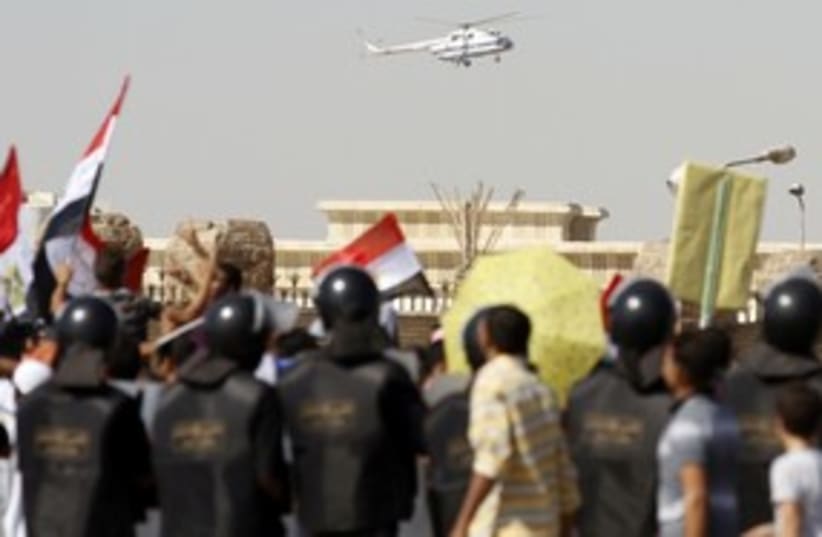Ambulance carrying Mubarak arrives at trial site
Ben-Eliezer: PM and I offered Mubarak haven in Eilat; former Egyptian president to be first Arab ruler put in the dock since uprisings; charges range from ordering killing of protesters to abusing power to amass wealth.
